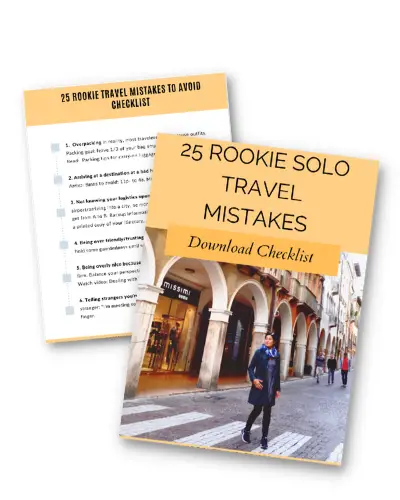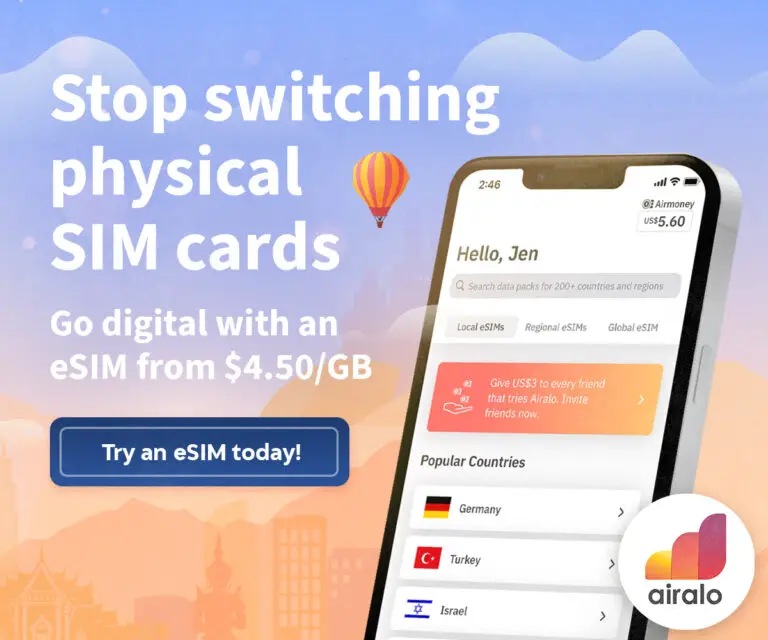Last Updated on December 3, 2012 by Christine Kaaloa
As promised, Returning from a Gap Year(s): Starting Over …, here’s some of what I learned.
They may sound stupid simple, but I promise you, when you’re going through them, it doesn’t seem as easy as it sounds.
Table of Contents: Returning from a Gap Year: 9 Tips to Starting Over
- 1 Here are 9 tips to Starting Over (or restarting your career ) after a Gap Year:
- 2 • Find a job… any job.
- 3 • Volunteer
- 4 • Take a class, workshop or apprenticeship and upgrade your knowledge
- 5 • Work on your own projects
- 6 • Sign up with one or more temporary staffing agencies.
- 7 • Ask employers for informational interviews.
- 8 • Be resourceful, take initiative and be creative in your thinking.
- 9 • Ask yourself if your industry is still something you want to and enjoy being in
- 10 • Know it may take time
- 11 What are some of your tips for starting over?
Here are 9 tips to Starting Over (or restarting your career ) after a Gap Year:
• Find a job… any job.
It doesn’t matter what your major or career was before you left. Getting work in any industry as a full-time or part-time employee will buy you time, restore green to your bank account and help keep you productive!
To be unemployed and feel unemployed, trust me,… is death.
When I got back from Asia after traveling and having ingested so much learning, wonder and discovery over the years, my action gears were still churning. I wanted more movement, visible growth and active learning. Thus, the stagnance of work, the weighted thoughts of restarting my career and the lack of a ‘busy’ schedule really frustrated me.
Luckily, the work experience and exposure I’d gotten from my gap years made me open-minded and less picky as to which jobs I’d let occupy this time. Although I had a previous career I’d worked hard to get, I’d just spent a year as an ESL teacher in Asia. I tossed around job ideas to help extend my stay and the job ideas I entertained didn’t even come close to “career serious”. They were “survival” jobs with a bit more fun to them, such as working as a nanny, at a hostel, for the Peace Corps and a camp counselor (oh wait, I did that…).
So when I got home, I wanted to take jobs that I could enjoy. I worked as a temp, a survey taker on a bus, I even came close to taking a part time job at a cookie shop… Titles didn’t matter to me. But survival did– I wanted to make money! I needed a job. Preferably one that I could enjoy doing.
• Volunteer
Volunteering gives you a sense of purpose and a confidence that your work is valuable, meaningful and helping to make a difference.
Thus, non-profit organizations usually need a large amount of volunteers for their events (i.e. marathons, festivals, etc..) Volunteering has the potential to gain you real work experience, put you in touch with people in your industry and help expand your social network and information grapevine.
But before raising your expectations to the assumption that a volunteer position in a company makes you an automatic shoe-in, look at the position you’re entering in at first. Unless you take a strategic action in placing yourself in the right position, the job and work won’t always contribute to your work portfolio or contact list. For instance, volunteering as an usher and ticket collector at a film festival didn’t allow me to meet filmmakers; instead, I met other volunteers
Unless you’re volunteering a skill or expertise, a volunteer position that anyone can do might relegate you to being seen as a nameless filler. If you want your volunteering to lead to work, you’ll need to take sharp-shooting aim towards an effective target and take the creative initiative to make yourself stand out.
• Take a class, workshop or apprenticeship and upgrade your knowledge
Taking classes or workshops in your industry, not only helps prepare you for the job market by developing tools and skills; it also puts you touch with others in that field. Your teacher and fellow students offer an immediate networking opportunity and can be helpful in alerting you to possible jobs they hear about, as well as offering you support.
Finding a respected industry leader that you admire and whom you’d like to learn from/work with is also another avenue. Learning from the industry’s most respected and gaining hands-on exposure to real world work is an invaluably huge step into the thick of the action. If you take strong initiative, are a good worker and are easy to work with, there’s a possibility you could be brought onto future projects.
Ideally, we’d all like to find jobs which pay us to learn or upgrade our skills. Some opportunities pay, others don’t. For instance, one of my temp agencies gives their client-employees access to computer workshops and tests to upgrade their skills. Public access television might loan you video equipment and train you in exchange for producing a program for its station… Whatever your industry is, there’s bound to be an avenue you can turn to for continued learning.
• Work on your own projects
Keeping busy, fends off depression and makes you feel productive. Think of fun projects to keep you feeling productive, creative and meaningful. You could start a garden, assemble your travel photos into an album, re-design and repair things in your household… If you’re just starting a new career, you might try to think up projects ideas to add to your skill set, showcase your latest talents or update a creative portfolio.
• Sign up with one or more temporary staffing agencies.
Temporary staffing agencies (aka temp agencies) market you out to employers ,who are looking for a substitute for a sick or absent employee. The agreement can last anywhere from one day to several months. Usually these agencies have a variety of clients in different industries. In some cases, if the company hiring your agent likes you, they’ll make an offer to hire you.
If you’re interested in a specific industry, you can request your agency to consider you for jobs in that field. Generally, signing up with two or three agencies, enhances your opportunities for work and agencies understand this .
Note: Signing up with a temp agency shouldn’t cost anything. The agency negotiates your wage with you directly, then turns around and charges their client a higher rate for hiring you. Technically, they’re making a commission on you, but it’s not being extracted from your wages. If the hiring client decides they want to take you on as a permanent employee, then the client must agree to a contract hire, where you’re still working under your agency and its rates, for a set period. After the period has elapsed, the client may hire you directly.
• Ask employers for informational interviews.
When I eventually committed myself to career revival, I called reputable companies and asked if they’d give me 15-20 minutes of their time for an ‘informational interview’.
Why a informational vs. a job interview? I’d been away from my industry for 2 years. I needed to know how it changed.
This was one way for me to introduce myself to the industry and to let them know what I did, though; but I also needed to get a better sense of the current industry, its needs, the technologies being used and to know where someone of my skill and expertise could fit into the grand scheme .
Some industry folk were kind and introduced me to others. Others, let me visit their workplaces to see how they operate. But almost all, gave me insightful peeks behind the closed curtain and shared their personal start-up stories with me. It gave me an idea of what approaches worked for others and how my industry and its people worked.
• Be resourceful, take initiative and be creative in your thinking.
Sometimes, you have to create your own opportunity.
If there’s two hardcore truths to me, it’s this– 1) I hate waiting for opportunities to be passed out and 2) I seldom take “No” for an answer if its something I’m passionate about. If someone tells me “No” or “You can’t“, then that becomes the exact motivation for me to find success. Would you believe that my old career as a TV camera woman (and my living in New York city) was a result of a string of “No”‘s and “You can’t“s?
What I did was, I kept plugging away until I got a “YES” and an open door.
If opportunity is not coming in, then you must find ways to bring it in. Many times, this takes a level of creative thinking and trouble-shooting. Is your resume not working? Maybe you need to reword it or get help and feedback writing it. If you’re bored or feeling stagnant then maybe you should think of ways to create your own projects to challenge yourself with.
Contests and exhibitions can be external motivations to further your work if you’re creative. Or you might offer your services to a friend, family member or non-profit company pro-bono.
• Ask yourself if your industry is still something you want to and enjoy being in
As much as I loved my old industry and career as a camera person, there are times I wonder if I still love it… or if my love for it changed.
This is normal. I’ve been away from my old lifestyle for some time and since, I’ve experienced new lifestyles, environments and different means of finding fulfillment.
I have to ask myself– Will starting over be worth the investment? Am I in a city which will nurture my success? Do I love my work enough to bear the burden of birthing it again? Am I ready for a potentially long haul?
If you’re starting over in a different city from your last, then starting over is a lot of work! You’re starting over almost completely. You have to do your homework- know who the big players are, what the industry needs, what kinds of work they do and find ways to meet the industry leaders you want to work with. Do you love your industry enough to start again?
• Know it may take time
Know that you may not see immediate results from your efforts. If this is the case, don’t get frustrated or this will lead to depression. Instead, be patient and trust all is happening in it’s own time.
To use travel analogies~ in travel, when we take a journey, we can’t always see what’s around the corner. Your flight got delayed and you missed your connecting plane, maybe your guesthouse was overbooked and your reservation was given away, etc… In travel, all is in darkness until a situation arises to test us…
Well, life is like travel. We can try to direct our flow, but we can’t control it. We can do all our homework to be the best we can be, but we can’t force things to come if it’s not within our reach.
Instead, we have to trust …that ultimately, time and flow will lead us to exactly where we need to be.
What are some of your tips for starting over?
Related Articles:
Why I won’t hang up my travel shoes
Returning from a Gap Year(s): 9 Tips to Starting Over
Coming home after a gap year: Starting Over
Coming home after a gap year? Well, get ready for a shock…

















